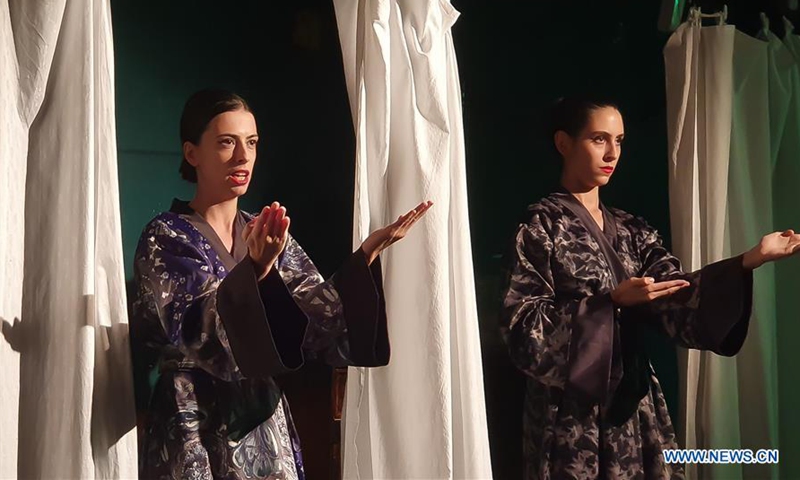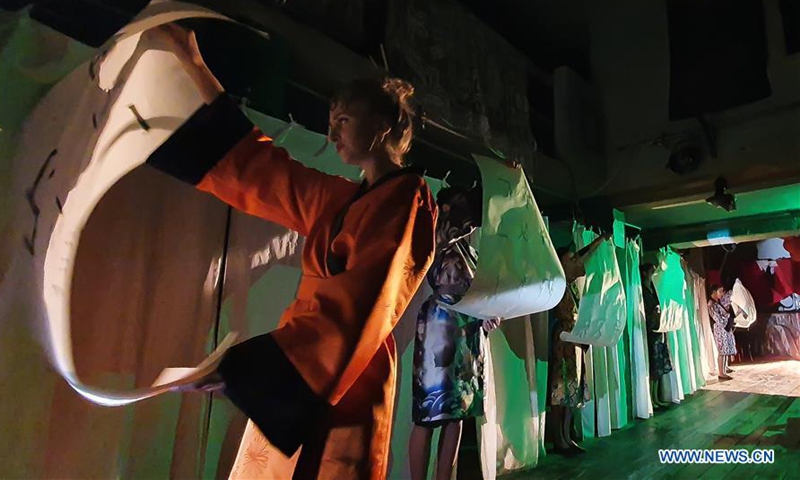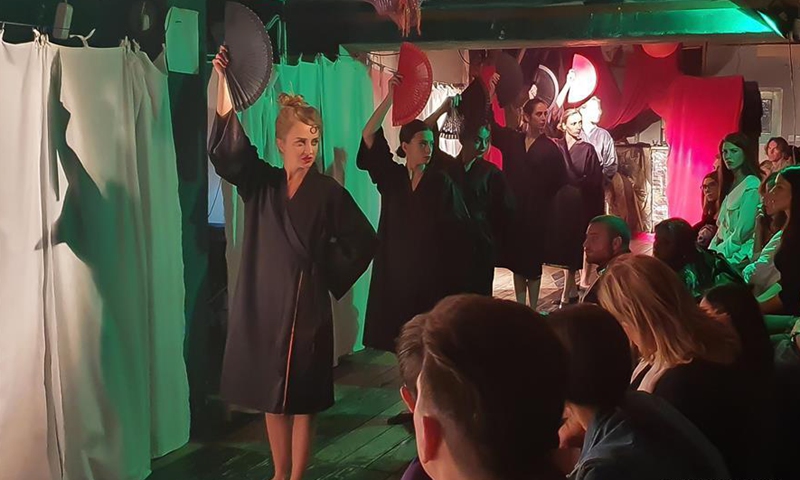Chinese culture in focus at Serbia theater festival
Source: Xinhua Published: 2020/9/20 9:20:05

Actors perform the opening play "Art of War" during the "Destiny Feast" theater festival in Belgrade, Serbia on Sept. 18, 2020. (Photo by Nemanja Cabric/Xinhua)
The "Destiny Feast" (Svetkovina Sudbina), a theater festival, kicked off here Friday, bringing an interesting reflection on some landmarks of Chinese culture.
The second edition of the festival was opened at Kosmodrom, an independent theater in downtown Belgrade under the slogan "10,000 Li," or 5,000 kilometers, which is a reference to the length of China's Great Wall.
The opening play "Art of War," a namesake of Sun Tzu's work, is directed by Filip Gajic, who wants to bring out the ancient Chinese military strategist's wisdom through "exciting" play.

Actors perform the opening play "Art of War" during the "Destiny Feast" theater festival in Belgrade, Serbia on Sept. 18, 2020. (Photo by Nemanja Cabric/Xinhua)
Gajic, who is also the founder of the Kosmodrom and the organizer of the "Destiny Feast" theater festival, explained that "Sun Tzu made a famous suggestion that concubines should be turned into warriors, and on that lead, we made an exciting and dynamic theater play."
The repertoire includes three more plays: "Harmony of Death" based on a work by Lao Tzu, an ancient Chinese philosopher, and directed by Stevan Serbedzija; "Splendor of Love" by Marija Mladenovic, based on a novel attributed to Li Yu, a well-known writer who lived in the 17th Century; and the "Golden Life" by David Alic which deals with a famous story by Zhuangzi, another ancient Chinese philosopher.
Gajic told Xinhua that the first edition of the festival in 2019 was based on Serbian epic poetry, while the second, taking place from Sept. 18 to 27, is dedicated to Chinese culture.

Actors perform the opening play "Art of War" during the "Destiny Feast" theater festival in Belgrade, Serbia on Sept. 18, 2020. (Photo by Nemanja Cabric/Xinhua)
He pointed out that the festival aims to provide audiences with contents outside of cultural patterns of the West, and offer a look into the cultures of the East.
He noted that Serbia-China ties are getting stronger, which opens space for wider cultural exchange.
Gajic reminded that the festival was supposed to be held in June, with a visiting Chinese theater group and traditional music performers, but the situation with the coronavirus pandemic got it postponed and reshaped.
"It's important that we didn't give up, and succeeded to produce four plays in these modest circumstances, by myself and three excellent directors. It will be a truly interesting and unusual contact with the Chinese culture, both for us and the audience," he concluded.